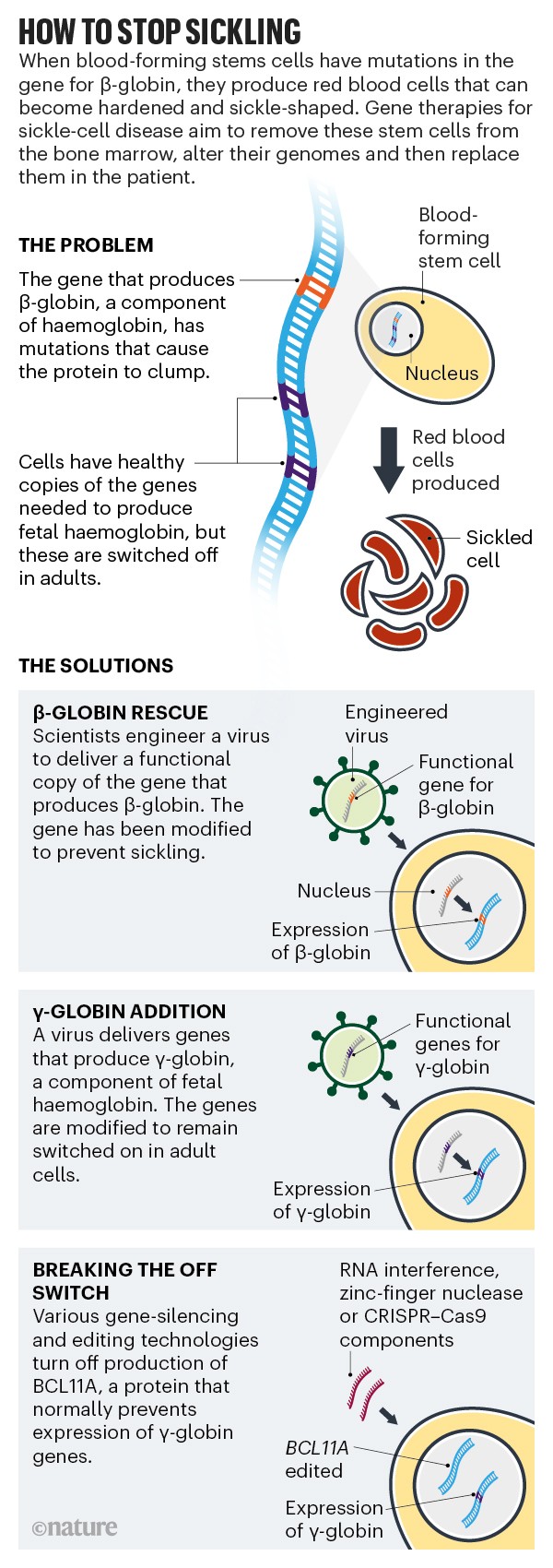Hello Nature readers, would you like to get this Briefing in your inbox free every day? Sign up here

For years, Grajevis Bakatunkanda’s sickle-cell anaemia went undiagnosed.Credit: Aurélie Marrier d'Unienville for Nature
Gene therapy wrestles with sickle-cell disease
Gene therapies are showing promising results for people with sickle-cell anaemia, one of the world’s most prevalent genetic disorders. The treatment could save many people with the disease who die young, and stop those who survive from experiencing episodes of extreme pain, strokes and infections. But some other gene therapies cost upwards of US$1 million per person, and sickle-cell disease is prevalent in countries where few can afford that — even if the necessary advanced medical care were available

Chinese universities with military ties classed as ‘risky’ collaborators
An Australian think-tank says that 43 Chinese universities should be considered ‘very high’ or ‘high’ risk collaborators because of their involvement in military and defence research. The Australian Strategic Policy Institute’s ranking database is partly funded by the US Department of State. The risk assessment comes just weeks after the Australian government released guidelines to help universities reduce the threat of foreign entities leveraging research activities on campus against Australia’s interests.
Tame animals might not necessarily get cuter
New findings have cast doubt on the conclusion of a classic experiment about what happens when animals are domesticated. A sixty-year project to tame silver foxes found that behavioural changes go hand in hand with physical changes, including floppy ears and curly tails. “The common storyline is that when you select for tameness in an animal species, a whole suite of other traits change in a predictable way,” said genomic scientist Elinor Karlsson, “and we just couldn't find convincing evidence for that.”
The Washington Post | 6 min read
Reference: Trends in Ecology & Evolution paper
Features & opinion
Who won’t be speaking at the AGU Fall Meeting
Researchers from racial and ethnic groups who are under-represented in US geoscience are the least likely to be offered opportunities to speak at the field’s biggest meeting — and the imbalance is most severe for women. Five geoscientists and psychologists who analysed the American Geophysical Union (AGU) Fall Meeting between 2014 and 2017 explore their findings of who got the microphone.
The false assumption that breaks economics
What matters to one’s wealth is how it evolves over time, not how it averages over many parallel states of the same individual. Sounds obvious, right? But this conceptual mistake lies at the heart of much of the formalism of economics, explains a Nature Physics editorial. The problem hinges on ‘ergodicity’ — an idea that simplifies the maths by assuming that the average over time is the same as taking the expectation value of an observable.
It’s a useful tool in thermodynamics — but relying on ergodicity in economics has led to a whole heap of problems, writes mathematician Ole Peters in an in-depth analysis. Peters argues that, by quashing indiscriminate assumptions of ergodicity, a bunch of puzzling economic phenomena suddenly make sense.
Nature Physics Editorial | 4 min read & Nature Physics Perspective | 18 min read
